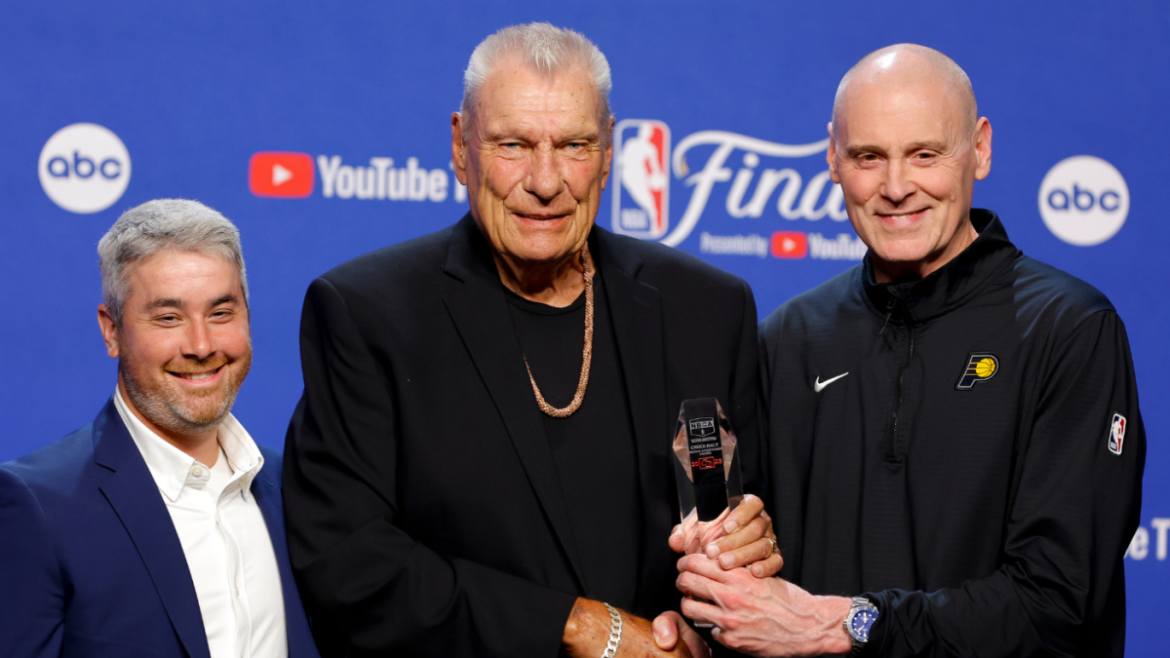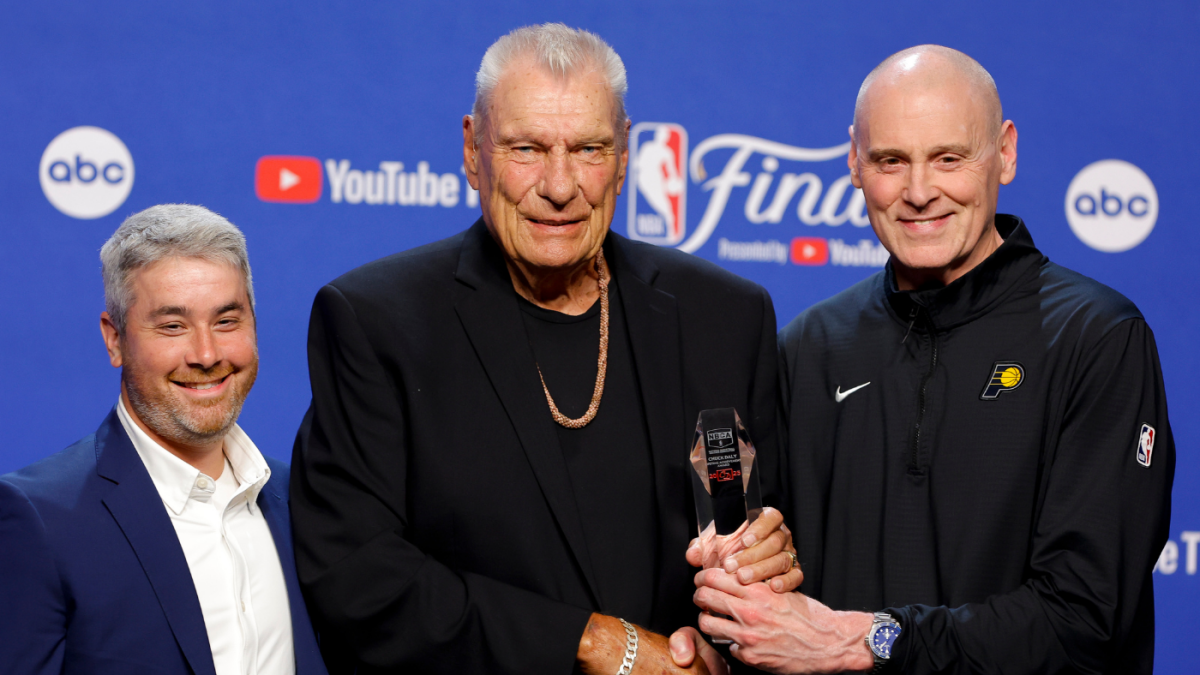Don Nelson’s Bold Stance on the Luka Dončić Trade: A Detailed Analysis
The recent trade of Luka Dončić from the Dallas Mavericks to the Los Angeles Lakers sparked considerable controversy throughout the NBA community. Among the loudest voices opposing the move is Don Nelson, a Hall of Fame coach and former Mavericks head coach, whose public protest against the trade has brought fresh attention to the incident. His grievances, expressed through a symbolic gesture of wearing Dončić’s signature shoes during a high-profile moment, provide rich insight into the emotional and strategic fractures caused by this landmark transaction.
—
Background: The Trade That Shook the NBA
On February 2, 2025, the Dallas Mavericks executed a blockbuster trade, sending their star forward Luka Dončić to the Los Angeles Lakers. This deal was widely regarded as one of the most shocking moves in recent NBA history due to Dončić’s status as one of the league’s brightest young stars. The Mavericks received a package including Anthony, but many critics, including Nelson, felt the trade undervalued Dončić’s potential and legacy within Dallas.
Nelson’s deep history with the Mavericks amplifies the weight of his criticism. As a coach and general manager for Dallas, Nelson led the team through formative years and cherished the culture of building around cornerstone players. For him, trading away a transformative talent like Dončić was more than a strategic error—it was a betrayal of a long-held philosophy.
—
Don Nelson’s Protest: Wearing Luka’s Shoes as a Symbol
At the 2025 Chuck Daly Lifetime Achievement Award ceremony during the NBA Finals, Don Nelson chose an overtly symbolic form of protest—he wore Luka Dončić’s newly released Nike signature shoes. This gesture was accompanied by pointed comments during his acceptance speech, highlighting his strong disagreement with the Mavericks’ decision:
– Nelson described the trade as a “tremendous mistake” by the Dallas franchise.
– He underscored his philosophy: “When you’ve got a great player, he’s yours for a lifetime.”
– Nelson openly called Luka Dončić a “dear friend,” signaling that his protest was both professional and deeply personal.
By choosing such a public stage and a tangible symbol (the shoes), Nelson’s protest went beyond verbal criticism. It underscored the emotional and philosophical rift created by the trade within the Mavericks’ extended basketball family.
—
The Strategic Mistake According to Nelson
Don Nelson’s assessment frames the trade as a strategic blunder rooted in a fundamental misunderstanding of team-building—specifically, the irreplaceable value of elite talent:
– Great players, Nelson argues, should be cornerstones, not assets to be shuffled.
– Trading a generational talent like Dončić disrupts continuity and fan trust.
– The move potentially diminishes the Mavericks’ competitive prospects and identity.
His viewpoint carries significant weight given his success and reputation. Nelson is the second-winningest coach in NBA history, with a career shaped by identifying and nurturing talent. His critique hinges on the belief that foundational stars must remain central to a franchise’s long-term vision.
—
Wider NBA Reaction and the Cultural Impact
Nelson’s protest has echoed widely, with many players and analysts chiming in. The trade was met with widespread dismay, some calling it “blasphemy” or one of the “dumbest trades” in recent memory. Reddit forums and sports media buzz with speculation:
– Some suggest the trade was influenced by external league dynamics, perhaps linked to maintaining star power on marquee teams like the Lakers.
– Others view the transaction as a backdoor move, raising questions about the motivations behind league decisions.
Nelson’s protest amplifies the sense of injustice felt by many fans and insiders, framing the trade as not just a miscalculation but a cultural misstep for Dallas.
—
Don Nelson’s Legacy and Voice of Experience
Don Nelson’s legacy enriches the protest narrative. Known for five NBA championships as a player and innovative coaching methods, Nelson has been an architect of NBA team-building philosophies. His views are not merely nostalgic but grounded in decades of league leadership, offering clarity on what it means to honor a franchise hero:
– He values loyalty and investing in player development over short-term trades.
– His words reflect a respect for basketball as a relationship-driven game, not just transactional business.
– Nelson’s decision to protest publicly reaffirms his willingness to challenge organizational decisions he deems flawed, even at the height of his own honors.
—
Conclusion: The Lasting Resonance of Nelson’s Protest
Don Nelson’s “sneaker protest” transcends a mere wardrobe choice—it encapsulates a broader conflict between tradition and modern NBA management practices. His public rejection of the Mavericks’ trade decision spotlights the tension between franchise strategy and the emotional bonds players build with coaches, fans, and communities.
By elevating Luka Dončić’s shoes to a symbol of resistance, Nelson reinvigorates a vital conversation about how NBA teams value their stars and legacies. His stance invites fans and executives to reconsider what greatness truly means in basketball—loyalty, respect, and vision for the future.
In an age dominated by rapid trades and blockbuster deals, Nelson’s protest serves as a poignant reminder that sometimes the greatest impact comes from standing firm in one’s beliefs—even if it means wearing another man’s shoes on the biggest stage to make your point.





